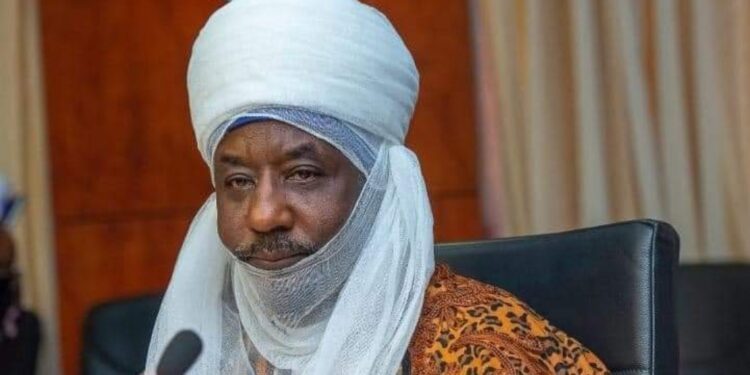The Emir of Kano, Muhammadu Sanusi II, has said that persistent policy inconsistency was a major obstacle to the country’s economic and agricultural development.
Mr Sanusi said this during a joint session of the United Nations World Food Programme and the African Development Bank organised on the sidelines of the Nigeria Economic Summit in Abuja.
He said Nigeria’s biggest problem remained the lack of continuity in government policies and failure by Nigeria’s civil service to serve as an institutional memory to sustain reforms beyond political transitions.
“The biggest problem I have seen with our country is the lack of policy continuity. Every time you have an election, it is as if everybody starts on a clean slate. A civil service that should preserve institutional memory has either by design or default failed to do so, so every few years, we come back discussing the same issues,” he said.
Mr Sanusi recalled how, during his tenure as CBN governor, he initiated a study of six agricultural value chains to improve lending to the sector and promote investments in local production. He cited the tomato value chain in Kano as an example of how well-intentioned reforms collapsed due to poor follow-through.
“We discovered 13 tomato varieties suitable for paste production, but outdated laws blocked their commercialisation. We had to fight for policy amendments, yet before the reforms could mature, the project was abandoned,” he stated.
According to him, Nigeria must focus on building strong agricultural value chains that attract private investment rather than relying solely on government funding.
“There is not enough money in the government to fix every farmer’s challenge. What the government can do is create confidence for private investment to thrive,” he added.
Mr Sanusi further warned against frequent policy reversals such as the recent relaxation of food import restrictions, which he said have discouraged investors and bankrupted farmers.
“In trying to bring down food prices, we wiped out the profits of producers and created non-performing loans in banks. If we keep changing direction, we’ll never fix poverty or attract investment,” he said.
Mr Sanusi urged the government to link agricultural policies to long-term development goals, restating that policy consistency was vital for combating poverty, stabilizing insecurity, and building an inclusive economy.
“Fixing the value chain is the best way to deal with poverty in northern Nigeria. But we must ensure the next government does not start from stage one again,” he added.
(NAN)







